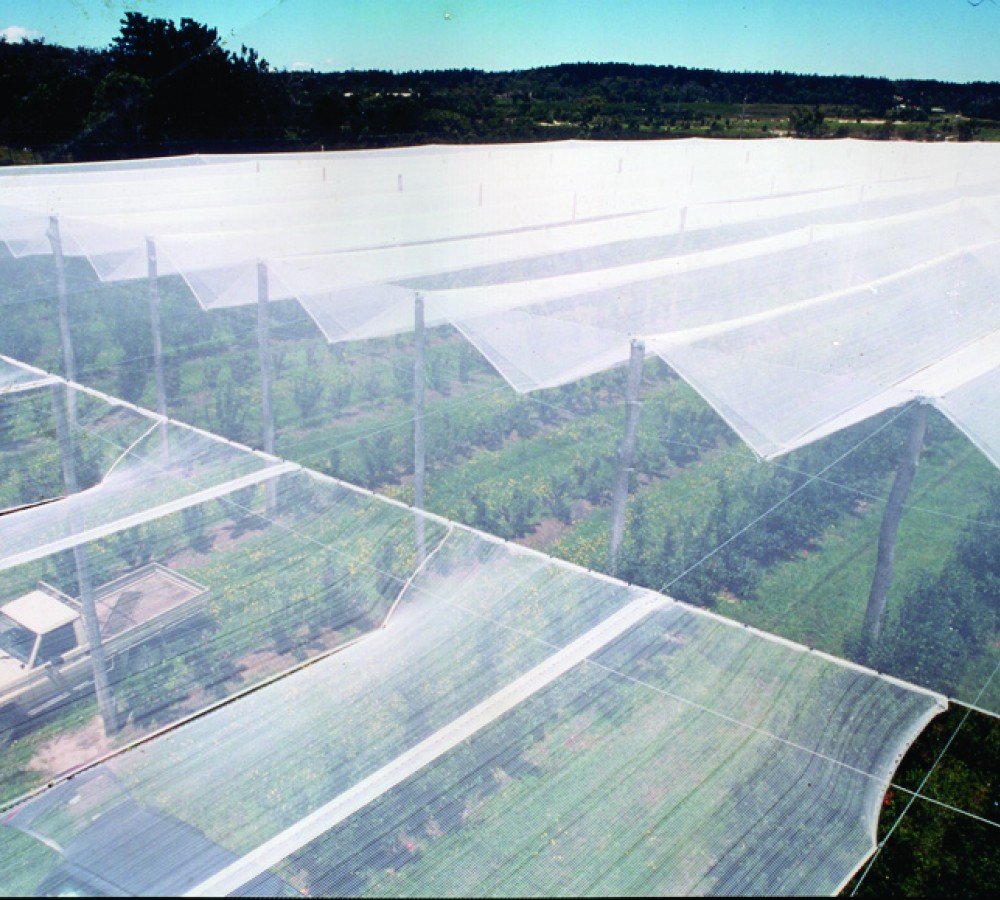To protect apple crops from hail and other natural disasters, farmers in Shimla have turned to an innovative solution - anti-hail netting. These nets act as a barrier, protecting the precious
fruit from potential damage and ensuring a safe harvest. This article dives into the details of how the practice has been adopted by local apple growers in Shimla, highlighting the benefits
it brings and its impact on the region's agricultural landscape.

Rise of anti-hail nets in Shimla:
Known as the "Apple Capital of India", Shimla has unpredictable weather conditions, with hail posing a major threat to apple orchards. Over the years, farmers have witnessed the
devastating impact of hail on their crops, causing huge economic losses. In response, they have begun implementing anti-hail nets as a proactive measure for crop protection.
Functions and advantages of anti-hail net:
The anti-hail net is specially designed to resist hail and prevent the hail from directly hitting the crops. Made from high density polyethylene material, these nets are durable, UV resistant
and provide excellent ventilation and water permeability. By using anti-hail nets, farmers can effectively reduce losses caused by hail and ensure higher yields and better quality.
Effects on crop yields and economic viability:
The adoption of anti-hail nets has proven to be a game-changer for Shimla apple growers. With these nets, farmers can now breathe a sigh of relief knowing that their hard work will not
be in vain. Improved hail protection can increase crop yields and enhance the economic vitality of farming communities. This new security measure enables farmers to invest in orchards and
expand their operations, ultimately achieving sustainable growth in Shimla's agricultural sector.
Environmental considerations:
In addition to the economic benefits, the use of hail nets also has a positive environmental impact. Unlike traditional protection measures such as the overuse of chemical pesticides, hail
screens offer a natural, non-toxic alternative. By reducing their reliance on harmful chemicals, farmers contribute to protecting soil health and promoting biodiversity in the region.
Challenges and Solutions:
While anti-hail nets have many advantages, their implementation is not without challenges. The initial cost of installing these nets may act as a deterrent to small-scale farmers, limiting
their access to the technology. However, various governmental and non-governmental initiatives have launched subsidy schemes and provided financial assistance to support farmers in
adopting hail netting systems. These interventions are designed to ensure inclusiveness and enable all farmers to work to protect their crops.
Knowledge exchange and capacity building:
Recognizing the potential of anti-hail nets in areas beyond Shimla, it is crucial to facilitate knowledge exchange and capacity building projects. The agricultural development sector should
organize seminars and training sessions to educate farmers on the benefits, installation techniques and maintenance of hail net systems. This knowledge exchange can create a
collaborative environment where farmers from different regions can implement the technology and effectively protect their crops.
International market potential:
Considering the success and effectiveness of Shimla Hail Nets, there is huge potential for export and market expansion. Countries facing similar climate challenges can benefit from
these networks, creating opportunities for collaboration and cross-border trade. Specialist companies can be formed to meet the growing demand for anti-hail nets, create employment
opportunities and strengthen the agricultural economy in Shimla and the country as a whole.
In summary:
The adoption of anti-hail nets by farmers in Shimla marks an important step in protecting apple crops and ensuring a sustainable agricultural future. This innovative solution protects
crops from unpredictable weather events, reduces potential losses and increases farmers' economic viability. With increased knowledge and improved accessibility, anti-hail nets have
the potential to revolutionize crop protection in India and globally. By giving farmers the tools to protect their livelihoods, we ensure not only food security, but rural economic growth.


 英语
英语 西班牙语
西班牙语













